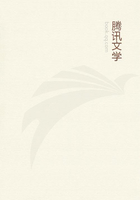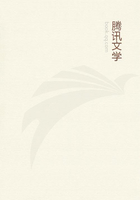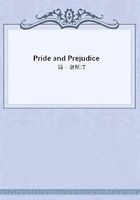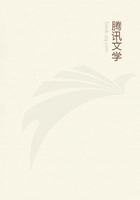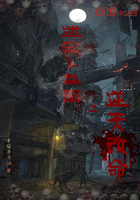"Wisdom hath builded her an house, and hath set up seven pillars; she hath sacrificed her victims, she hath mingled her wine in the bowl; she hath also furnished her table.She hath sent her servants summoning to the bowl with excellent proclamation, saying, Who is simple, let him turn aside to me.And to the void of sense she hath said, Come, eat of my bread, and drink of the wine which I have mingled for you."(2) Here certainly we perceive that the Wisdom of God, that is, the Word co-eternal with the Father, hath builded Him an house, even a human body in the virgin womb, and hath subjoined the Church to it as members to a head, hath slain the martyrs as victims, hath furnished a table with wine and bread, where appears also the priesthood after the order of Melchizedek, and hath called the simple and the void of sense, because, as saith the apostle, "He hath chosen the weak things of this world that He might confound the things which are mighty."(3) Yet to these weak ones she saith what follows, "Forsake simplicity, that ye may live; and seek prudence, that ye may have life."(4) But to be made partakers of this table is itself to begin to have life.For when he says in.another book, which is called Ecclesiastes, "There is no good for a man, except that he should eat and drink,"(5) what can he be more credibly understood to say, than what belongs to the participation of this table which the Mediator of the New Testament Himself, the Priest after the order of Melchizedek, furnishes with His own body and blood? For that sacrifice has succeeded all the sacrifices of the Old Testament, which were slain as a shadow of that which was to come; wherefore also we recognize the voice in the 40th Psalm as that of the same Mediator speaking through prophesy," Sacrifice and offering Thou didst not desire; but a body hast Thou perfected for me."(6)Because, instead of all these sacrifices and oblations, His body is offered, and is served up to the partakers of it.For that this Ecclesiastes, in this sentence about eating and drinking, which he often repeats, and very much commends, does not savor the dainties of carnal pleasures, is made plain enough when he says, "It is better to go into the house of mourning than to go into the house of feasting."(7) And a little after He says, "The heart of the wise is in the house of mourning, and the heart of the simple in the house of feasting."(8) But I think that more worthy of quotation from this book which relates to both cities, the one of the devil, the other of Christ, and to their kings, the devil and Christ:
"Woe to thee, O land," he says, "when thy king is a youth, and thy princes eat in the morning! Blessed art thou, O land, when thy king is the son of nobles, and thy princes eat in season, in fortitude, and not in confusion!"(9) He has called the devil a youth, because of the folly and pride, and rashness and unruliness, and other vices which are wont to abound at that age; but Christ is the Son of nobles, that is, of the holy patriarchs, of those belonging to the free city, of whom He was begotten in the flesh.The princes of that and other cities are eaters in the morning, that is, before the suitable hour, because they do not expect the seasonable felicity, which is the true, in tile world to come, desiring to be speedily made happy with the renown of this world; but the princes of the city of Christ patiently wait for the time of a blessedness that is not fallacious.This is expressed by the words, "in fortitude, and not in confusion," because hope does not deceive them; of which the apostle says, "But hope maketh not ashamed."(10)A psalm also saith, "For they that hope in Thee shall not be put to shame."(11) But now the Song of Songs is a certain spiritual pleasure of holy minds, in the marriage of that King and Queen-city, that is, Christ and the Church.But this pleasure is wrapped up in allegorical veils, that the Bridegroom may be more ardently desired, and more joyfully unveiled, and may appear; to whom it is said in this same song, "Equity hath delighted Thee;(12) and the bride who there hears, "Charity is in thy delights."(13) We pass over many things in silence, in our desire to finish this work.
CHAP.21.--OF THE KINGS AFTER SOLOMON, BOTH IN JUDAH AND ISRAEL.
The other kings of the Hebrews after Solomon are scarcely found to have prophesied, "through certain enigmatic words or actions of theirs, what may pertain to Christ and the Church, either in Judah or Israel; for so were the parts of that people styled, when, on account of Solomon's offence, from the time of Rehoboam his son, who succeeded him in the kingdom, it was divided by God as a punishment.The ten tribes, indeed, which Jeroboam the servant of Solomon received, being appointed the king in Samaria, were distinctively called Israel, although this had been the name of that whole people; but the two tribes, namely, of Judah and Benjamin, which for David's sake, lest the kingdom should be wholly wrenched from his race, remained subject to the city of Jerusalem, were called Judah, because that was the tribe whence David sprang.But Benjamin, the other tribe which, as was said, belonged to the same kingdom, was that whence Saul sprang before David.But these two tribes together, as was said, were called Judah, and were distinguished by this name from Israel which was the distinctive title of the ten tribes under their own king.
For the tribe of Levi, because it was the priestly one, bound to the servitude of God, not of the kings, was reckoned the thirteenth.
For Joseph, one of the twelve sons of Israel, did not, like the others, form one tribe, but two, Ephraim and Manasseh.

